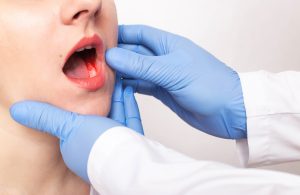 Mouth cancer diagnoses in England have reached their highest level on record, with experts warning that too many people remain unaware of the early signs of the disease.
Mouth cancer diagnoses in England have reached their highest level on record, with experts warning that too many people remain unaware of the early signs of the disease.
New data released from NHS England shows the number of annual mouth cancer cases in England has reached 9,293. It marks a year-on-year rise, a 37% increase over the past decade, and more than double the number recorded a generation ago. Deaths have also climbed, with 2,970 people losing their lives, up 42% compared with ten years ago.
The figures have been highlighted by the Oral Health Foundation, which says the latest rise is deeply concerning and comes amid persistently low public awareness of mouth cancer. Research by the charity shows that nearly one-in-four people (23%) do not know it is possible to develop cancer in and around the mouth, while awareness of the most common signs and symptoms is as low as one-in-five (20%).
The charity leads Mouth Cancer Action Month, which runs throughout November and this year carries the theme “The Costs of Mouth Cancer.” The campaign aims to highlight how the disease affects not only physical health but also confidence, speech, appearance and finances, alongside the emotional toll on families and carers.
Dr Nigel Carter OBE, chief executive of the Oral Health Foundation, said the new statistics show that mouth cancer is exacting a growing cost on both people and the health system.
Dr Carter says: “The true cost of mouth cancer isn’t just measured in lives lost. It’s in the pain, disfigurement and emotional trauma survivors live with every day. The fact that cases continue to rise while awareness remains so poor is deeply worrying. Far too many people still don’t know the warning signs or delay getting help.
“We’re urging everyone to be mouthaware – check your mouth regularly and seek advice if something doesn’t feel right.”
Father of four, Robert Powell, from Milton Keynes, knows the importance of spotting mouth cancer early. His sore throat started soon after moving to France to run a bed and breakfast, but he ignored it for months.
“I did the blokey thing and thought it would go away,” he said.
A dentist later spotted something serious and referred him for tests, which revealed cancer on his tonsils – diagnosed on his 62nd birthday. Now recovered after chemotherapy and radiotherapy, Robert still lives with lasting side effects.
“You can’t be complacent and think it won’t happen to you,” he said. “Regular dental check-ups really can be a matter of life or death.”
Mr Mahesh Kumar, President Mouth Cancer Foundation and Maxillofacial Surgeon said stories like Robert’s show why awareness remains so vital.
Mr Kumar says: “We’re increasingly seeing mouth cancer in people who don’t fit the traditional risk profile. While smoking and alcohol remain major risks, the human papillomavirus (HPV) is now linked to many new cases, particularly among younger people. Recognising the signs early – ulcers that don’t heal, red or white patches, or unusual lumps in the mouth, head or neck – can make all the difference.”
Around a third of mouth cancers occur on the tongue and nearly a quarter on the tonsils, with other cases found on the lips, gums and floor of the mouth. While most cancers are in decline, mouth cancer continues to rise sharply. The Oral Health Foundation says regular dental visits remain one of the simplest ways to catch the disease early.
“We want people to really know their mouth, head and neck,” adds Dr Carter.
“Understand what’s normal for you, so you can spot when something isn’t quite right. If you notice anything unusual – a lump, a patch, an ulcer that doesn’t heal – don’t delay. Visit your dentist or GP and get it checked. Acting quickly could save your life.”
More information about mouth cancer, including how to check for signs and symptoms, is available at mouthcancer.org.




